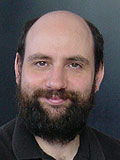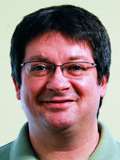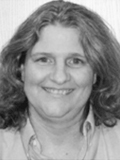|
|
Training: "Domain Specific Languages"
Time:
Tuesday 09:00 - 16:00
Location:
City Room
Abstract:
Domain Specific Languages (DSLs) are an old technique in software
development that's getting a recent resurgence in interest. Most
developers run into them regularly - as XML
configuration files, regular expressions, query languages or build
scripts. However they haven't been given the attention they deserve and
there is very little information out there to help developers build them
effectively. We find that few people have done much to build their own
DSLs and even fewer have a broad appreciation of the various techniques
involved.
This tutorial is a step towards closing this gap. We'll begin by
introducing the three main categories of DSLs: External, Internal, and
Language Workbenches. We'll talk about the advantages of DSLs and the
problems in using them, so that you'll appreciate what the different
styles look like and when you might want to build them. In the second
part we'll go into more details on techniques of working with each of
the three styles, to get you started on your own work.
We are currently working to develop a coherent pedagogic framework (if
you'll forgive a pretentious name) for DSLs, this tutorial is an
opportunity to catch up with our work. However it does come with a
caveat: we are still very much in the middle of the process of capturing
and organizing this knowledge. As a result we won't be describing a
finished body of knowledge, but rather one that is still evolving.
|
Chief Scientist Martin Fowler, Loud-mouth on Object Design

Martin Fowler is an author, speaker, consultant and general loud-mouth on software development.
He concentrates on designing enterprise software - looking at what makes a good design and what practices are needed to come up with good design. He has pioneered object-oriented technology, refactoring, patterns, agile methodologies, domain modeling, the Unified Modeling Language (UML), and Extreme Programming.
He's the Chief Scientist at ThoughtWorks - an international application development company, and has written five books on software development: Analysis Patterns, UML Distilled (now in its 3rd edition), Refactoring, Planning Extreme Programming (with Kent Beck), and Patterns of Enterprise Application Architecture. I also write articles regularly on my site at Martin Fowler.
Neal Ford, Editor of "No Fluff, Just Stuff Anthology"

Neal Ford is an senior application architect at ThoughtWorks, a global IT consultancy with an exclusive focus on end-to-end software development and delivery.
He is also the designer and developer of applications, instructional materials, magazine articles, courseware, video/DVD presentations, and author of the books Developing with Delphi: Object-Oriented Techniques, JBuilder 3 Unleashed, and Art of Java Web Development.
He is also the editor and a contributor to No Fluff, Just Stuff Anthology : The 2006 Edition and No Fluff, Just Stuff Anthology Volume 2: The 2007 Edition. His primary consulting focus is the building of large-scale enterprise applications. He is also an internationally acclaimed speaker, having spoken at numerous developers conferences worldwide. Check out his web site at www.nealford.com. He welcomes feedback and can be reached at nford@thoughtworks.com.
Rebecca Parsons, ThoughtWorks

Dr. Parsons has more than 20 years of application development experience in industries ranging from telecommunications to emergent internet services. She has been published in language and artificial intelligence media, served on numerous program committees, and currently reviews academic articles for several journals.
Before coming to ThoughtWorks she worked as an assistant professor of computer science at the University of Central Florida. She also worked as director's post doctoral fellow at the Los Alamos National Laboratory researching issues in parallel and distributed computation, genetic algorithms, computational biology and non-linear dynamical systems.
Dr. Parsons holds a [Ph.D] in Computer Science from Rice University.
|
 |
| |






